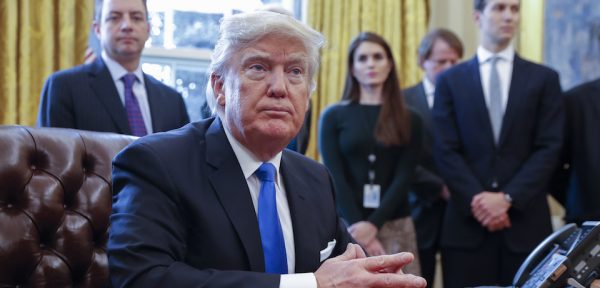How Internal Conflicts Change International Perception

Through the rise of unorthodox politics, the United States is at an international crossroad. Throughout history, the United States has been regarded with the highest of moral decency, being referred to as the leader of the free world. The contemporary changes in administration, however, are causing the pillars of international affairs and general politics to rattle in discomfort.
Through the continuous trickle-down political polarization from DC to family dinner tables, the American public has never been so divided; these deviations, embedded within a secluded yet mob-set mentality, prove to be detrimental to all constructive political discourse. In a time where collaboration and communication are vital and rampant, the American public instead decides to opt for a more secluded path. In effect, general perception and affairs are to be affected most directly with the US’ administration and indirectly through their values and ideologies.
From the 2016 presidential election to the recent midterm elections to the seemingly distant 2020 elections, the view of politics is drastically shifting both domestically and internationally. With high approval ratings being virtually unattainable for the commander-in-chief, Donald Trump, the public is to rely on perception overseas. According to Pew Research Center, across ten major European superpowers, contemporary views of the United States tilted toward the negative, with a median of 43% favorable compared to 52% unfavorable. This is a drastic change when compared to the Obama administration, who had higher rankings in seven of these ten countries. These dips include 27 points in Germany, 25 points in France, and 11 points in the UK; these changes are even steeper in the western hemisphere. Throughout history, however, the views of the US were significantly higher than most other superpowers. This deviation can either prove to be a shallow trough in the timeline of the country or the start of a steep decline. If the latter proves to be true, there is no clear way to restore the confidence that has been restlessly built for two centuries.
The reason for such lousy perception lies in the administration’s generally unorthodox and untrained media presence. Through vulgar phrases being spewed at both veterans and women, countries abroad have sensitized to the commander-in-chief, shown through low acceptance ratings. Although the difference in progressive and conservative policies do play a role, that role could not be so drastic to produce such a situation, especially overseas. The perception of the United States is, in fact, reliant on the perception of the administration and the president, rather than the country as a whole. This distinction is vital and needs to be expressed internationally to build stronger relations and to regain the previous presence of the United States.









